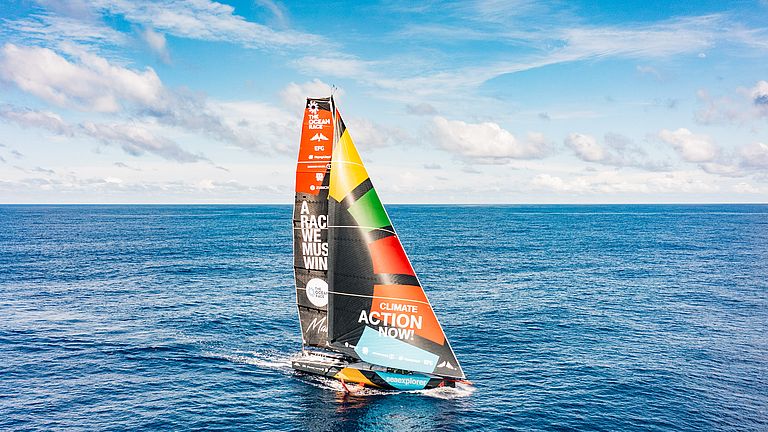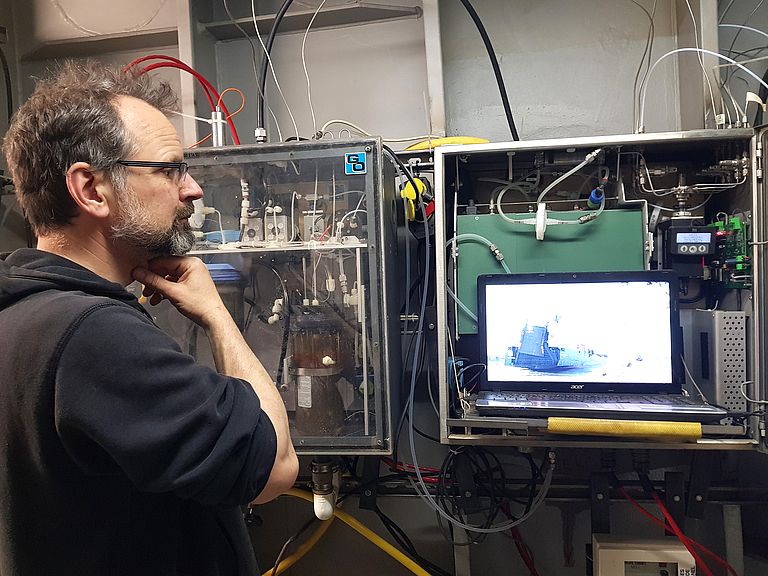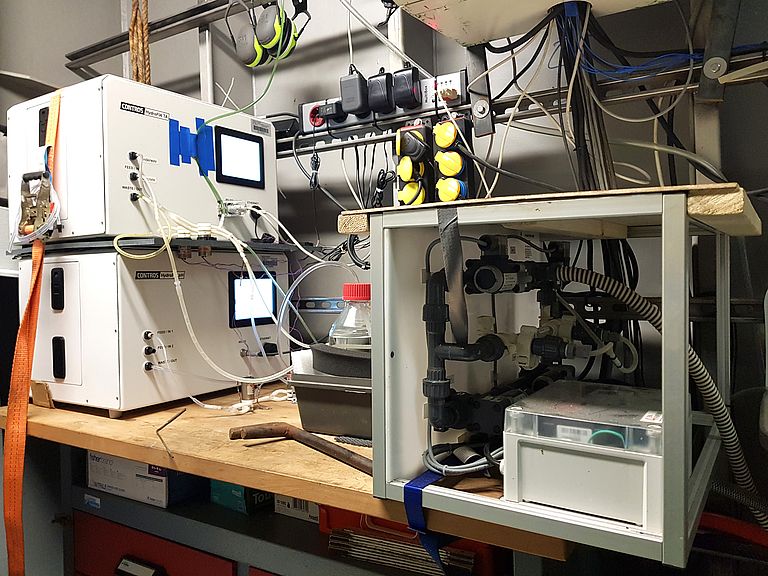Ocean observation: Shaping an Ocean of Possibilities
Project under GEOMAR leadership receives funding as Helmholtz Innovation Platform
Scientists at Helmholtz centres are working on often unique, high-performance research infrastructures in relevant fields of application. Knowledge generated there forms the basis for innovations and new technological developments in industry. On the other hand, it helps us to understand and shape our environment. Creating direct access to this knowledge in new, faster cooperation models is an important task of the Helmholtz Association. As a tool for this, innovation platforms have been set up to create access to ideas and attractive infrastructures. This facilitates the exchange between the research centres as well as external interested parties. Helmholtz is now funding three new innovation platforms, including the project “Shaping an Ocean Of Possibilities” (SOOP) coordinated at GEOMAR Helmholtz Centre for Ocean Research Kiel.
The ocean influences us in many ways, regardless of where we live. It determines the global climate and provides people with food, materials, energy, transport and recreational opportunities. “Despite its huge importance, we still know very little about large parts of the ocean and changes taking place there,” says Dr. Toste Tanhua, chemical oceanographer at GEOMAR and coordinator of the SOOP. “On the one hand, we still lack easy to use and inexpensive instruments to collect sufficient information across regions. On the other hand, we need joint standards for data and analyses. Both are important to support sustainable use and protection of the ocean.”
The SOOP innovation platform develops sustainable structures and technologies for ocean observation to collect important data, improve access to ocean data and thus expand the overall knowledge about the ocean. To this end, GEOMAR, the Alfred Wegener Institute, Helmholtz Centre for Polar and Marine Research (AWI) and the Helmholtz Centre Hereon bring together stakeholders from industry, civil society and science. As partners, they will develop devices such as sensors or probes that can also be installed on ships that are not used for scientific purposes, from cruise liners and sailing yachts to global container fleets. Existing examples for such applications are measurements taken during the global regatta “The Ocean Race” and the expeditions of the German explorer Arved Fuchs, as well as the “Odyssey” project, which contributes to the Global Ocean Observing System (GOOS) as part of the United Nations Decade of Ocean Research for Sustainable Development.
Data collected with these sensors is for example integrated into new models of the ocean and improves early warning systems and statements about ocean health or the distribution of microplastics. A main focus is on transfer: SOOP aims to open up a larger and more reliable market for ocean sensor technology – with scalable and compatible instruments, easy to use and with known characteristics. SOOP also has the potential to support stakeholders from low-income countries and indigenous communities, partly through the development of open-source hardware and software. In this way, the platform can contribute to empowering the Global South in terms of climate change mitigation and adaptation.
“The funding for SOOP highlights the importance of detailed and up-to-date knowledge about the state of the ocean for societal action and policy-making. Only based on detailed observational data, can we make sustainable decisions for the protection and use of the ocean,” explains GEOMAR Director Professor Dr. Katja Matthes. “As GEOMAR, we are very proud to lead a network of institutions within and outside the Helmholtz Association and to be able to make our contribution to improved ocean observation. The activities also contribute to the development of the Global Ocean Observing System in the framework of the Ocean Decade.”
Helmholtz is supporting the three platforms with 40 million euros from the Pact for Research and Innovation. In close cooperation with strong partners from industry and society, the platforms will strengthen transfer and innovation in the Helmholtz Association and initiate long-term applied solutions. Funding for HI-ACTS and Solar TAP began on 1 January 2023, while funding for SOOP will start in the second quarter of 2023.

The racing yacht "Malizia Seaexplorer" collects data for scientific analysis during her participation in the Ocean Race. Photo: Antoine Auriol

With the help of the "Ocean Pack", the racing yacht "Malizia Seaexplorer" collects data on the carbon dioxide concentration in the ocean during The Ocean Race 2022-2023. Photo: Jimmy Horel

Measurements of carbon dioxide concentrations on board a cargo ship in the North Atlantic. Photo: GEOMAR

System for carbon dioxide measurements on board a cargo ship in the North Atlantic. Photo: GEOMAR


